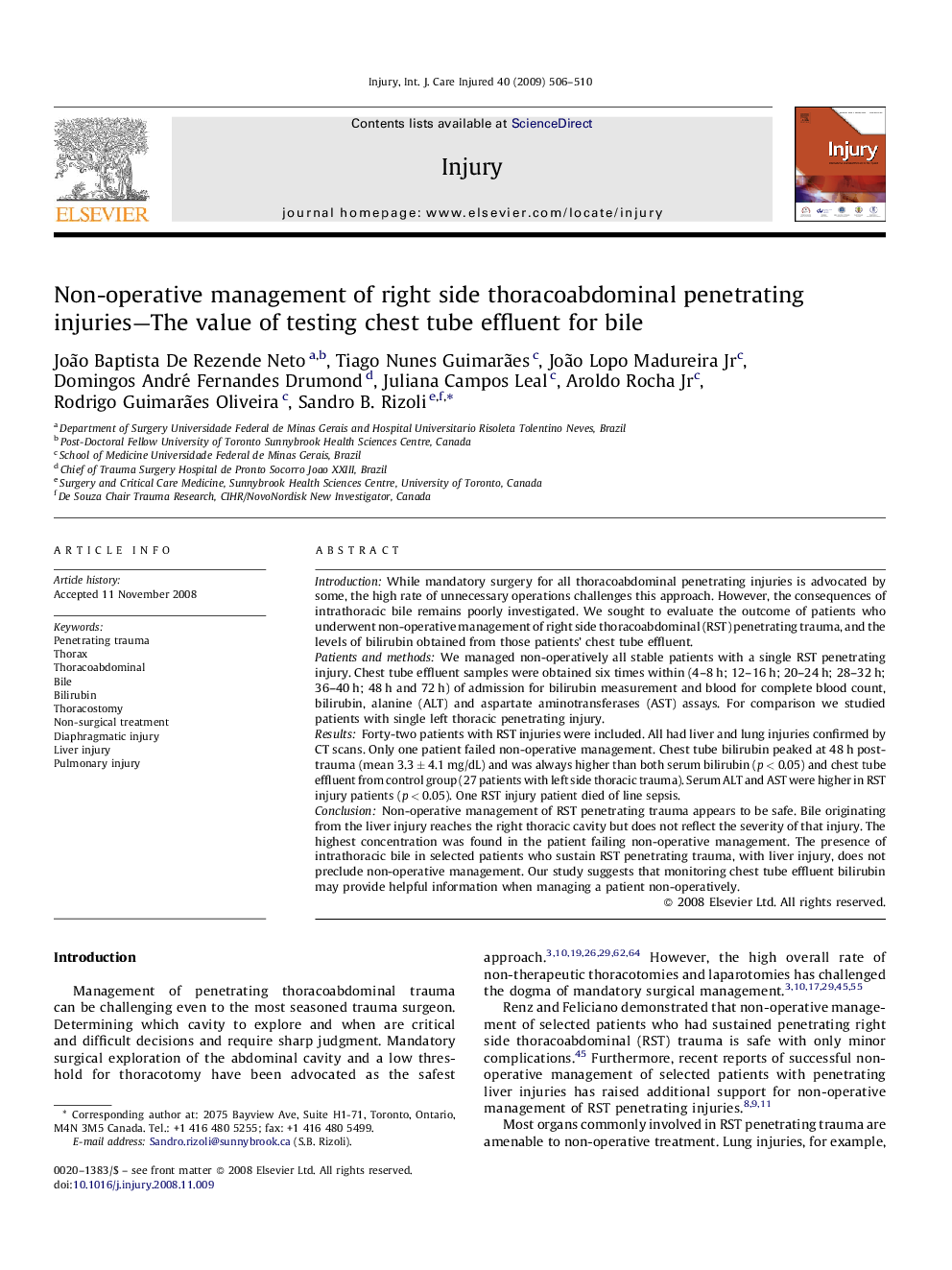| کد مقاله | کد نشریه | سال انتشار | مقاله انگلیسی | نسخه تمام متن |
|---|---|---|---|---|
| 3241288 | 1206070 | 2009 | 5 صفحه PDF | دانلود رایگان |

IntroductionWhile mandatory surgery for all thoracoabdominal penetrating injuries is advocated by some, the high rate of unnecessary operations challenges this approach. However, the consequences of intrathoracic bile remains poorly investigated. We sought to evaluate the outcome of patients who underwent non-operative management of right side thoracoabdominal (RST) penetrating trauma, and the levels of bilirubin obtained from those patients’ chest tube effluent.Patients and methodsWe managed non-operatively all stable patients with a single RST penetrating injury. Chest tube effluent samples were obtained six times within (4–8 h; 12–16 h; 20–24 h; 28–32 h; 36–40 h; 48 h and 72 h) of admission for bilirubin measurement and blood for complete blood count, bilirubin, alanine (ALT) and aspartate aminotransferases (AST) assays. For comparison we studied patients with single left thoracic penetrating injury.ResultsForty-two patients with RST injuries were included. All had liver and lung injuries confirmed by CT scans. Only one patient failed non-operative management. Chest tube bilirubin peaked at 48 h post-trauma (mean 3.3 ± 4.1 mg/dL) and was always higher than both serum bilirubin (p < 0.05) and chest tube effluent from control group (27 patients with left side thoracic trauma). Serum ALT and AST were higher in RST injury patients (p < 0.05). One RST injury patient died of line sepsis.ConclusionNon-operative management of RST penetrating trauma appears to be safe. Bile originating from the liver injury reaches the right thoracic cavity but does not reflect the severity of that injury. The highest concentration was found in the patient failing non-operative management. The presence of intrathoracic bile in selected patients who sustain RST penetrating trauma, with liver injury, does not preclude non-operative management. Our study suggests that monitoring chest tube effluent bilirubin may provide helpful information when managing a patient non-operatively.
Journal: Injury - Volume 40, Issue 5, May 2009, Pages 506–510